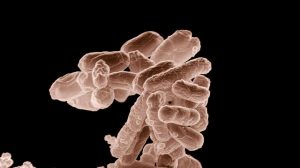A genetic firewall to protect natural ecosystems from viruses
A research group from Harvard Medical School (United States) has modified the genetic code of a bacterial strain of the E. coli species so that it is immune to all viruses in nature. The main objective of this study, published in the journal Nature, is to eliminate the risk of viral contamination, a serious problem that causes high losses in those industrial production processes that involve bacteria.
This newly exchanged genetic code makes cells resistant to all natural viruses and prevents genetic information from flowing in and out of genetically modified organisms. In addition, as these cells may have a selective advantage over wild organisms due to this resistance to viruses, the research team has developed in the same system a security measure aimed at preventing the modified genetic material from being incorporated into natural cells. , avoiding the risk of escape into nature.
In summary, this discovery may provide the basis for a general strategy to make any organism safely resistant to all natural viruses and prevent genetic information from flowing in and out of genetically modified organisms. With this new genetic firewall, natural ecosystems could be protected from viruses that could cause irreparable damage.
Fuente: Nyerges, A., Vinke, S., Flynn, R. et al. A swapped genetic code prevents viral infections and gene transfer. Nature (2023). DOI: https://doi.org/10.1038/s41586-023-05824-z








